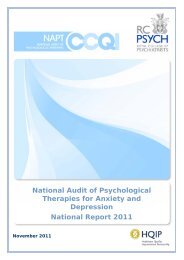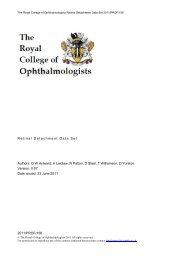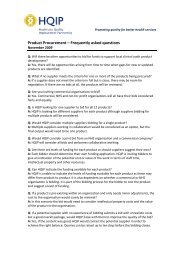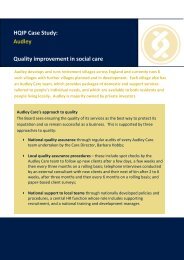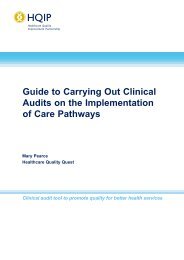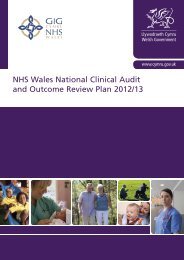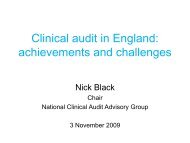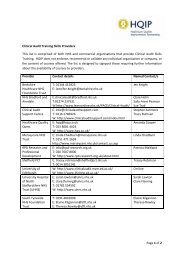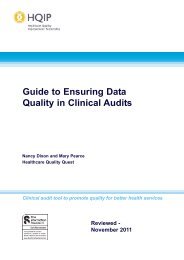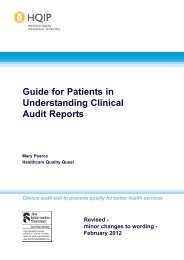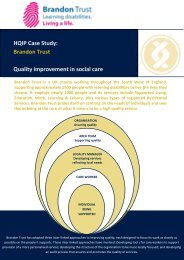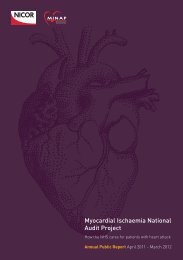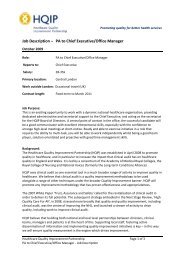Good Governance Handbook - HQIP
Good Governance Handbook - HQIP
Good Governance Handbook - HQIP
Create successful ePaper yourself
Turn your PDF publications into a flip-book with our unique Google optimized e-Paper software.
6. Behaviours, Systems and Supports<br />
The Board is not simply a group of individuals. It needs to work together if not as a<br />
team as a group which is clear about roles and relationships. It will need support from<br />
individuals and systems which provide information, analysis, assurance and<br />
identification of risk.<br />
6.1 Behaviours<br />
From outside the NHS the report on corporate governance in financial institutions<br />
prepared by Sir David Walker, 33 said “principal deficiencies in… boards related much<br />
more to patterns of behaviour than to organisation.”<br />
<strong>Good</strong> board governance cannot be legislated for but can be built over time.<br />
According to Sonnenfeld, 34 the ‘best bets’ for success are:<br />
• A climate of trust and candour in which important information is shared with<br />
all board members and provided early enough for them to digest and<br />
understand.<br />
• A climate in which dissent is not seen as disloyalty and in which mavericks and<br />
dissenters are not punished.<br />
• A fluid portfolio of roles for directors so individuals are not typecast into rigid<br />
positions on the board.<br />
• Individual accountability with directors given tasks that require them to<br />
inform the rest of the board about issues facing the organisation.<br />
• Regular evaluation of board performance.<br />
The publication identified four characteristics of effective boards:<br />
• A focus on strategic decision-making.<br />
• Board members who trust each other and act cohesively / behave corporately.<br />
• Constructive challenge by board members of each other.<br />
• Effective chairs who ensure meetings have clear and effective processes.<br />
• Attempts at Improving Board Effectiveness.<br />
Behaviours determine the actions of the organisation and are a vital element of good<br />
governance. Some behaviours are expected and prescribed, others reflect experience,<br />
styles and etiquettes adopted or learnt.<br />
6.2 <strong>Good</strong> <strong>Governance</strong> Standard for Public Services<br />
In January 2005, an Independent Commission established by the Chartered Institute<br />
of Public Finance and Accountancy ( CIPFA) and the Office for Public Management<br />
(OPM), under the Chairmanship of Sir Alan Langlands, published its <strong>Good</strong> <strong>Governance</strong><br />
Standard for Public Services. 35 The standard consists of six principles.<br />
33 FRC, The Walker Review of Corporate <strong>Governance</strong> of UK Banking Industry, 2009<br />
34 Harvard Business Review, What makes great boards great? September 2002<br />
35 www.cipfa.org.uk/pt/download/governance_standard.pdf<br />
www.good-governance.org.uk 23



